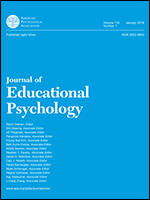The Science

Det här är ett textstycke. Klicka här för att lägga till egen text. Det är enkelt. Klicka bara på “Redigera text” eller dubbelklicka för att lägga till eget innehåll och ändra typsnitt. Du kan flytta runt stycket genom att klicka och dra. Ett utmärkt ställe att berätta din historia och låta dina användare lära känna dig.
Här kan du skriva en lång text om ditt företag och dina tjänster. Du kan använda utrymmet för att gå in på djupet om ditt företag. Berätta om ditt team och vilka tjänster du erbjuder. Berätta hur du kom på idén att starta ditt företag och vad som gör att ni skiljer er från konkurrenterna. Få ditt företag att sticka ut och visa vem du är för dina besökare.

OUR RESEARCH PARTNERS
We are evidence-based
At Akribian, science permeates everything we do. For us, science means gathering and applying knowledge through systematic methods based on evidence.
Count on Me!, has been rigorously tested and proven through the most academically rigorous review processes. This means that both parents and teachers can be confident that the time children spend playing Count on Me! is time well spent.
(CBT)
Cognitive Behavioral Therapy
At the core of Cognitive Behavioral Therapy (CBT) is positive reinforcement for correct behavior and adjusted instructions for mistakes. The key idea? If a student struggles to learn, the issue lies not with the student, but with the teaching method or tool.
Our research, conducted in collaboration with Karolinska Institutet, tested 2,000 students in a large-scale study. The results showed that just 19 hours of digital CBT-based math training led to learning gains equivalent to 6 months of traditional instruction.
This approach proved especially effective for helping students who were behind catch up with their peers—while also allowing teachers to focus more on students needing extra support.
We want to disrupt the one-size-fits-all teaching model because we know that children don’t learn in the same way, at the same pace. We want to do more than convert traditional schoolbooks into a digital format – we aim to re-think education.

Why combine science and games?
Many popular “homework”-style apps lack scientifically proven and rigorously tested results. There is no evidence to show long-term, statistically significant improvement in maths knowledge.Our educational maths app Count on me! is developed from over ten years of gold-standard research and the research of Martin Hassler Hallstedt, Psychologist and PhD.
We can prove that children who use Count on me! increase their maths skills by 60%, compared to the children who did not train in the app.In a story-driven learning adventure, children are more willing to practice, less afraid of getting questions wrong, and in the end, see the results that can only come from spending time learning maths. Instead of viewing their time learning maths as a chore, children want to come back and play every day.
Ongoing studies and collaborations

University College of London and Oxford University
Dr Laura Outhwaite at University College of London and mathematics researcher Dr Ann Dowker at Oxford University will study the efficacy of Count on Me! on maths performance and maths anxiety for children using the app at home. This study (using a multiple single-case design) will start at the beginning of 2022.

Cambridge Mathematics
With this collaboration, Akribian has been given the permission to use the comprehensive framework on mathematics from Cambridge Mathematics to inform our product development.

Randomized controlled trials with 3 Swedish universities
Akribian is currently doing three ongoing RCT:s with top-ranked Swedish universities Karolinska, Lund University, and Uppsala University.
The goal of the studies is to evaluate the efficacy of Count on Me! for various populations: typically developing 5-6-year-olds respectively 7-9-year-olds, as well as intellectually disabled children.
One of the studies – the Minerva project – is the largest RCT ever to evaluate digital mathematics training, including 1800 students
Publications and list of papers

Hassler Hallstedt, M., & Ghaderi, A. Predicting Long-Term Response in a Mathematics Tablet Intervention. Submitted for publication. Included in the doctoral dissertation, Closing the Gap,

Hassler Hallstedt, M., Klingberg, K., & Ghaderi, A. (2018) Short and Long-Term Effects of a Mathematics Tablet Intervention for Low Performing Second Graders. Journal of Educational Psychology.

Hassler Hallstedt, M., & Ghaderi, A. (2018) Tablets Instead of Paper-Based Tests for Young Children? Comparability between Paper and Tablet Versions of the Mathematical Heidelberger Rechen Test 1-4. Educational Assessment.




